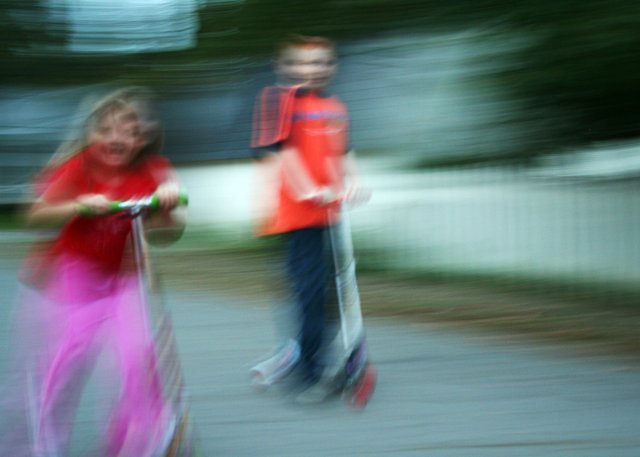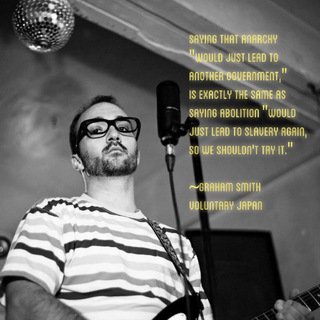The unschooling path is not the easy road. In fact, it is akin to taking a brambly forest path when a brand new five-lane freeway lies outside the door. Sure, the freeway is easy and convenient. The problem is, you don't really see much of anything.
Here in Japan, the typical approach to child rearing is as follows:
- Have kid.
- Wait until kid is 6 months to 1 year old.
- Put them into government-sponsored daycare and get back on the hamster wheel generating money for the state.
Now, admittedly, this assessment ignores much of the positive aspect of approaches to child rearing in Japan, such as the emphasis on the importance of breastfeeding, skin-to-skin contact, co-sleeping, healthy eating and a relatively high awareness as regarding vaccine risks.
That said, Japan, like all other developed nations, gets it dreadfully wrong when it comes to "education."
Before I get into the meat of this report, I'd like to share a few quotes from one of my heroes, the late master educator and lifelong learner/former public school teacher, John Holt:
“We destroy the love of learning in children, which is so strong when they are small, by encouraging and compelling them to work for petty and contemptible rewards, gold stars, or papers marked 100 and tacked to the wall, or A's on report cards, or honor rolls, or dean's lists, or Phi Beta Kappa keys, in short, for the ignoble satisfaction of feeling that they are better than someone else.”
― John Holt
“The true test of character is not how much we know how to do, but how we behave when we don't know what to do.”
― John Holt
“We can best help children learn, not by deciding what we think they should learn and thinking of ingenious ways to teach it to them, but by making the world, as far as we can, accessible to them, paying serious attention to what they do, answering their questions -- if they have any -- and helping them explore the things they are most interested in.”
― John Holt

Life is in motion, it's not trapped behind a desk.
Kids learn naturally. Everybody does. Schooling is not necessary for learning.
This should really be a "duh" kind of statement, but surprisingly, due to the remarkable amount of statist (government) brainwash the average individual is exposed to from the time they pop out of the womb to adulthood, most individuals come to view compulsory public education as a kind of natural part of life. Sun, moon, trees, school.
This is remarkable, not only in view of what actually goes on at these public centers of "education," but also in view of the fact that compulsory education is a relatively recent phenomenon. Ubiquitous mandatory public schooling in the U.S. is less than 100 years old, with the final state to adopt legislation requiring attendance being Mississippi in 1918. Even after these mandates, attendance requirements remained much more lax and flexible than today, often allowing children to work on their family's farm and be more engaged in day-to-day community life. source.
I quote John Taylor Gatto, probably the only award winning public school teacher to have the cops called on him at an award acceptance speech. This snippet is from a speech he gave at his reception of the New York State Teacher of the Year Award, called "The 7-Lesson Schoolteacher:"
Think of all the great natural sequences like learning to walk and
learning to talk, following the progression of light from sunrise to
sunset, witnessing the ancient procedures of a farm, a smithy, or a
shoemaker, watching your mother prepare a Thanksgiving feast -- all of
the parts are in perfect harmony with each other, each action justifies
itself and illuminates the past and future. School sequences aren't
like that, not inside a single class and not among the total menu of
daily classes. School sequences are crazy.
I highly recommend reading this speech. It's amazing for its depth of insight and clarity. Mr. Gatto did not remain a public school teacher for very long after this, if I am not mistaken. In his own admission, he tried to sabotage his job as much as possible by actually educating kids and affording them on-site job experience by allowing them passes to miss his class.
At my son's former preschool. It looks all nice, organized, and pretty, and there were some very fun things there, but a lot of what parents do not see, is the day-after-day "falling-in-line drills" and the stifling of flow, which cannot be regimented, and is essential to real learning.
My Son, Isaiah--an informal case study.
Isn't it amazing that you learned to speak your native language fluently with no textbook to "teach" you? Isn't it amazing that you learned all those complex and disjointed rules of grammar without even trying!? I mean, people study English for years and years as a second language and still can't grok the overall basic structure and proper usage.
I came out of my mom as a ball of flesh with no knowledge, textbooks or "teachers" and could speak better English than most foreigners by age 3 or 4. I have been studying Japanese for 7 years now and still have to ask my 4-year-old son now what he means by this or that Japanese word or usage.
Life is learning. Language has a definite purpose for us, and utility. In short, learning the language our mommy and daddy use to communicate has meaning. We need to get that milk! We need our blessed diaper changed! This language stuff gets shit done!
Without meaning, "education" is a breathtakingly inane and pathetic waste of an individual's time.
My son, up until the time of "dropping out" of his preschool/daycare center, was speaking largely Japanese. He spent most of the day around Japanese speakers (his peers, teachers, and so on) and so this makes a lot of sense. What is the use of learning a language you don't use? There is no meaning here.
Once he became bored with the preschool, however, and told his mother and I he didn't wish to attend anymore, something "strange" happened: I noticed an almost immediate jump in his English language ability. In about 3-months' time, after being home with me more often and hearing me speak to him in English, he speaks to me now almost exclusively in my native tongue, and is making it his own.
What's more, he goes out of his way to ask me to translate words, sentences, and phrases for him so he can remember them and use them next time. Anytime he doesn't know how to say something, he asks me in Japanese: "Daddy, how do you say ________ in English? Now remember, I am not prompting him to do this. English now has a utility for him and he is making it his own. This is a public school "educator's" fantasy, is it not? The reason kids are not taking this kind of initiative at the public schools, generally speaking, is easy to see. To them, the curriculum is meaningless to their own lives. And, indeed, their individual, unrepeatable, organic and beautifully unique lives and experiences are not respected as such. They are simply meant to "fall in line."
(As a brief aside, I can remember trying to learn algebra in high school and feeling extremely stupid. I thought something was wrong with me because I was not interested and continually failed to answer the teacher's prompts when called upon. It wasn't until I got to college and had a wonderful Sri Lankan professor tell me that "numbers are beautiful" that I started to get it. She made the whole thing approachable and illuminated numerical connections to patterns in nature and philosophy. I wasn't stupid, after all. This teacher, unlike my teacher in high school, just managed to show me numbers in a new way that made sense to me, and inspired me.)
A video to illustrate:
Notice how Isaiah repeats my English translation of what he conveys in Japanese with no promps or cajoling to do so. Learning is always an individual experience that occurs naturally. It is not an exaggeration to say that life is learning.
Isaiah says: "Koopa だけ get inside だよ" (Only Koopa can get inside).
My reply: "Only Koopa can?"
Isaiah: "うん、そうだよ" (Yes, that's right.) "Only Koopa can."
I don't "teach." I just provide the resource. He can take it or leave it as he deems necessary and meaningful to his own individual path.
Closing: Why Public School is Poison, and Antithetical to Real Learning
I have had friends argue that the public school system has saved many children who are from low socioeconomic backgrounds, dysfunctional families, and abusive relationships. One such friend spent a significant amount of time working with "delinquent" and disadvantaged youth at a center in Canada. He saw a lot, and I certainly acknowledge that public schools can, in certain instances, be a kind of safehaven and springboard to opportunity for certain children from extremely tough, abusive, and impoverished backgrounds. All that said, it is my view that private schools could do it 1,000 times better, if the legal red tape of state restrictions and requirements were removed, and the free market in education were allowed to function. It is not within the scope of this article to dive into all this now, however.
Suffice it to say that school is, overall, a place detrimental to the healthy development of children. Anyone who reads the history of public schooling can see that this is no accident. Compulsory, state-sponsored "education" is designed to confuse, disenfranchise, and discourage. A class of little worker bees is needed. Real critical thinking and a passion for life are detrimental to this aim.
The science is out. Child psychology and experts in human learning processes have weighed in: KIDS DON'T LEARN LIKE THIS. In spite of all the evidence, empirical, anecdotal, and otherwise, the big, outdated, greasy engine of state-sponsored education grinds on, oily and putrid, smashing the minds of this planet's number one, most valuable resource: the open minds of children ready and excited to learn and to be alive.
The moral of this story?
UNSCHOOL YOUR KIDS!!!
Thanks for stopping by today. If you found value in this article I certainly appreciate your upvote. Also, I would like to encourage to you to read more by these great thinkers:
- John Holt
- John Taylor Gatto
- A.S. Neill
Peace!
~KafkA
Graham Smith is a Voluntaryist activist, creator, and peaceful parent residing in Niigata City, Japan. Graham runs the "Voluntary Japan" online initiative with a presence here on Steem, as well as Facebook and Twitter. (Hit me up so I can stop talking about myself in the third person!)



Wonderful article.
I can speak from experience as well that natural, spontaneous education (without 'schooling') is exponentially more effective. It's certainly scary at first, as all 'unknowns' tend to be (although realizing that zero credible evidence exists to suggest schooling is 'known' to work), but over time the results are truly amazing. Everyone who meets my 8yo, without exception, comments on how intelligent he is.
Downvoting a post can decrease pending rewards and make it less visible. Common reasons:
Submit
Thanks for this encouraging comment. Yes, it really is amazing to think what the world would look like if all young people were afforded the opportunity (which should be the default!) that you have afforded your son. Kids are naturally bright and ready--hungry, even--to learn. Hearing from others even farther down the path than I am is a breath of fresh air. Thank you!
Downvoting a post can decrease pending rewards and make it less visible. Common reasons:
Submit
so you don't think it's a good idea to force ideas onto folks? :) lol
Downvoting a post can decrease pending rewards and make it less visible. Common reasons:
Submit
I know. Scandalous, right?
Downvoting a post can decrease pending rewards and make it less visible. Common reasons:
Submit
Canada has a very poor public education too!
Downvoting a post can decrease pending rewards and make it less visible. Common reasons:
Submit
Yes, I'm in Canada and agree. I unschool my 3.
It seems that Finland has the best public school system in the world.
Downvoting a post can decrease pending rewards and make it less visible. Common reasons:
Submit
homeschool
Downvoting a post can decrease pending rewards and make it less visible. Common reasons:
Submit
Cheers @kafkanarchy84! Great content, thank you.
Downvoting a post can decrease pending rewards and make it less visible. Common reasons:
Submit
Cheers, @corvuscoraxx, I really appreciate that.
Downvoting a post can decrease pending rewards and make it less visible. Common reasons:
Submit
Very interesting article. Thank you!
Downvoting a post can decrease pending rewards and make it less visible. Common reasons:
Submit
I have thought about this for a number of years. I was really glad to read this post.
Just one question: what do you mean by "[private schools could do it 1,000 times better if] the free market in education were allowed to function"? Wouldn't this disenfranchise people who can't afford it and perpetuate elitism?
Everything apart from that is my kind of thinking, particularly the quotes from John Holt.
Thanks!
Downvoting a post can decrease pending rewards and make it less visible. Common reasons:
Submit
I have read about how private schools work so much better than public schools in parts of Africa.
The tuition is really, really low, and they run on a budget less than half (maybe it was a quarter) what a public school runs on,
yet the education is outstandingly better than public schools.
The thing is, that government run projects seem to always go way over budget and do a poor quality job.
Downvoting a post can decrease pending rewards and make it less visible. Common reasons:
Submit
What do you think it is specifically that makes state schools poor? Homogenisation perhaps?
Downvoting a post can decrease pending rewards and make it less visible. Common reasons:
Submit
It's at least partly because they feel that they don't have real competition. Most people will keep using the 'free' education/baby-sitting.
So their jobs are secured whether or not they give a satisfactory performance.
Downvoting a post can decrease pending rewards and make it less visible. Common reasons:
Submit
What about testing? Do you think there's a way to get rid of it?
I had a passenger in my Uber recently who told me about an awesome-sounding system called Waldorf education.
Downvoting a post can decrease pending rewards and make it less visible. Common reasons:
Submit
Definitely, if they wanted to get rid of testing they could.
Finland did it!
Downvoting a post can decrease pending rewards and make it less visible. Common reasons:
Submit
Thanks for your comment!
Privatization would ultimately open the possibility for higher quality, lower tuition schools. Just as in the field of healthcare, less violent (tax-based/mandated) government intervention generally means better, more community-based care, and greater affordability due to less bureaucratic overhead, and, well...compassion.
People used to be able to go to any hospital in the past and receive care, whether they could afford it or not, because doctors actually believed in the Hippocratic oath. Now folks are being robbed blind and made unable to afford healthcare as a direct result of government interventions such as "Obamacare," etc.
Basically public schooling now is unethical as it is funded by stolen money (taxes) and ineffective, inefficient, and detrimental to healthy development in children because it is not based on research or science, but on a state agenda to create docile, non-critical order followers.
Downvoting a post can decrease pending rewards and make it less visible. Common reasons:
Submit
Why were the cops called on Gatto? Curious to know.
Downvoting a post can decrease pending rewards and make it less visible. Common reasons:
Submit